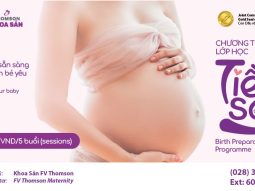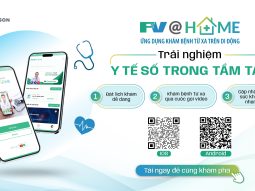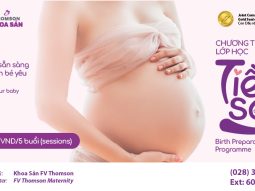Cataract surgery (also known as clouded lens surgery) using the Phaco technique for the elderly; performed in less than 15 minutes, without causing pain; after surgery, patients can see both near and far without needing to wear glasses.
Cataract surgery completed in just 15 minutes, with quick recovery.
In 2021, Mr H. Saran visited FV Hospital for a vision check due to blurred eyesight. The examination revealed that he had cataracts, which, if not treated early, could significantly impact his ability to work and preform daily activities. Delaying treatment could also result in longer surgery time and an increased risk of complications during the procedure.
When cataracts occur the eye’s lens becomes clouded, blocking light from reaching the retina and reducing the patient’s vision. Dr Hoang Chi Tam – Ophthalmology & Refractive Surgery Department at FV Hospital, explained that Mr Saran had a history of diabetes for over 20 years, which accelerated the progression of his cataracts compared to non-diabetic individuals. “High blood sugar levels cause osmotic changes and damage to eye cells, turning the clear lens into a cloudy one, leading to blurred vision,” Dr Tam noted.
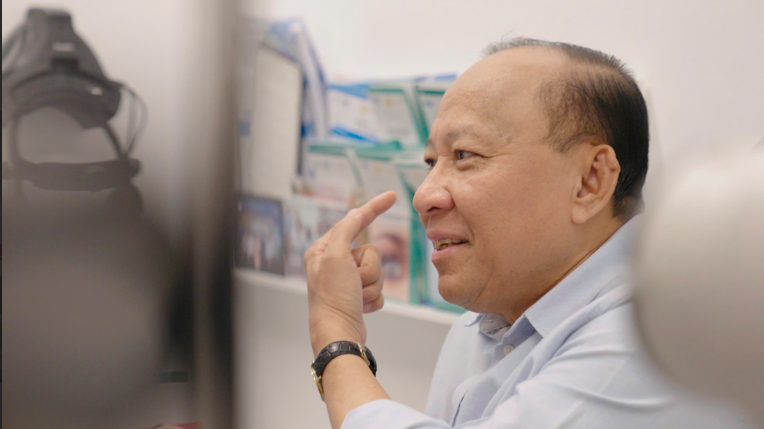
Mr Saran was advised to undergo cataract surgery to restore his vision early on, but due to concerns about potential complications from his diabetes, he delayed the surgery for three years. By the time his vision had deteriorated to the point where he could barely see, he returned to FV Hospital for the procedure.
Dr Hoang Chi Tam observed that the patient’s vision had reduced to just 1/10 in the left eye and 2/10 in the right eye. Fortunately, the condition of the retina was good, without signs of diabetic retinopathy, and an OCT scan of the retina showed that the optic nerve was normal, making the surgery viable. The patient was also evaluated by an endocrinologist for diabetes management and underwent pre-surgery assessments with an anaesthesiologist to ensure safety during the procedure.
Mr Saran was scheduled for cataract surgery using the Phaco technique, which is highly safe. This method uses ultrasonic energy to break the cloudy lens into small fragments, which are then removed through a small incision. A multifocal extended depth of focus (EDOF) intraocular lens was implanted, allowing the patient to see well at near, intermediate, and far distances without glasses, while also reducing glare during night time driving.
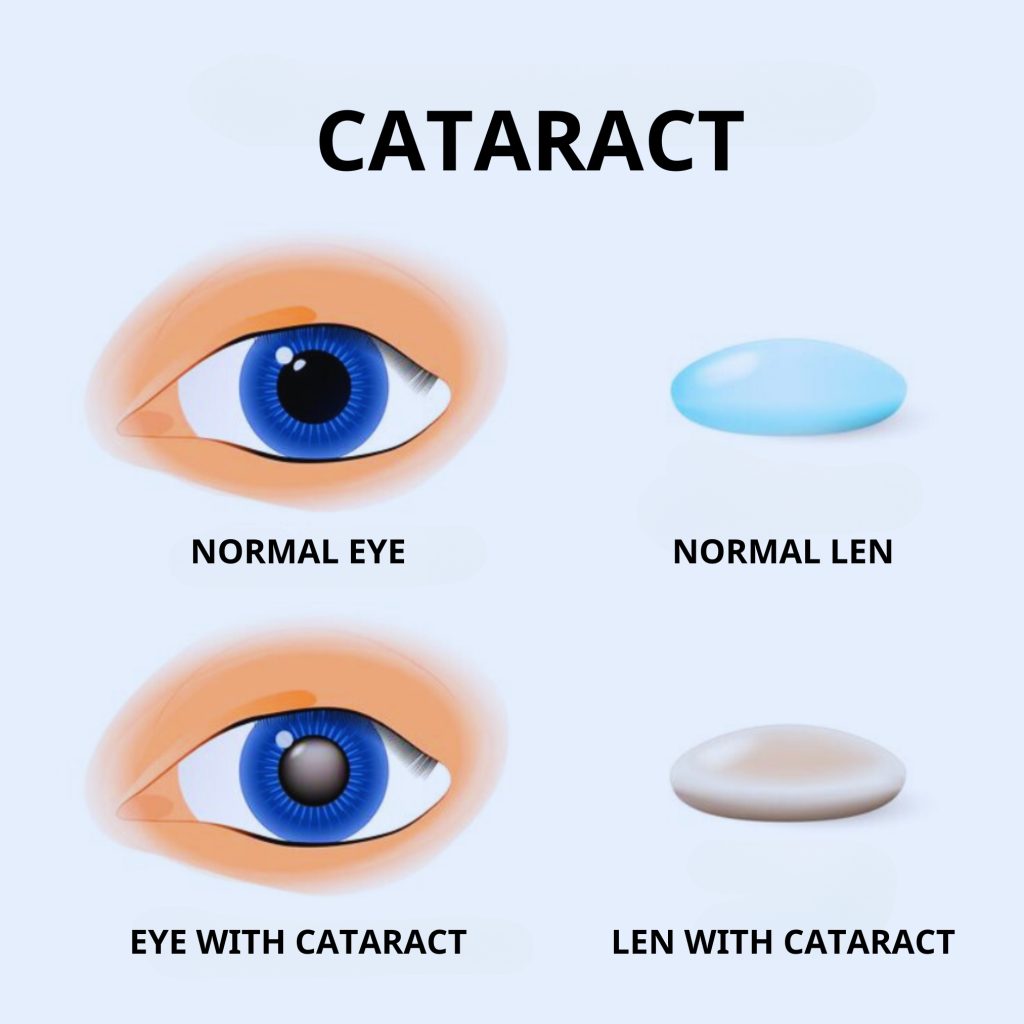
The surgery for Mr Saran lasted 15 minutes and he reported feeling no pain during the procedure. Two hours later, the eye patch was removed; he was given protective glasses, and discharged from the hospital. He was surprised to regain his vision just six hours after the surgery.
The plan was to operate on each eye separately, with a week between surgeries to assess recovery and treatment response. At his follow-up appointment, Mr Saran was delighted to find that his vision had improved to 9/10 in both eyes. With his clear and healthy vision, he can now comfortably carry out daily activities without the need for glasses.
What should be noted for a quick recovery after cataract surgery?
Dr Hoang Chi Tam emphasises, “In cases where vision does not improve after surgery, it is often due to accompanying conditions such as glaucoma, diabetic retinopathy, macular degeneration, or vascular occlusion in the eye.” Therefore, to achieve good results from cataract surgery, patients need to undergo a pre-operative examination. Dr Tam explains that at FV, the pre-operative examination process includes checking blood sugar levels, blood pressure, cholesterol levels, and consulting with internal medicine doctors and anaesthesiologists as necessary. Performing surgery when blood sugar levels are high increases the risk of post-operative infection, slow wound healing, and retinal complications.
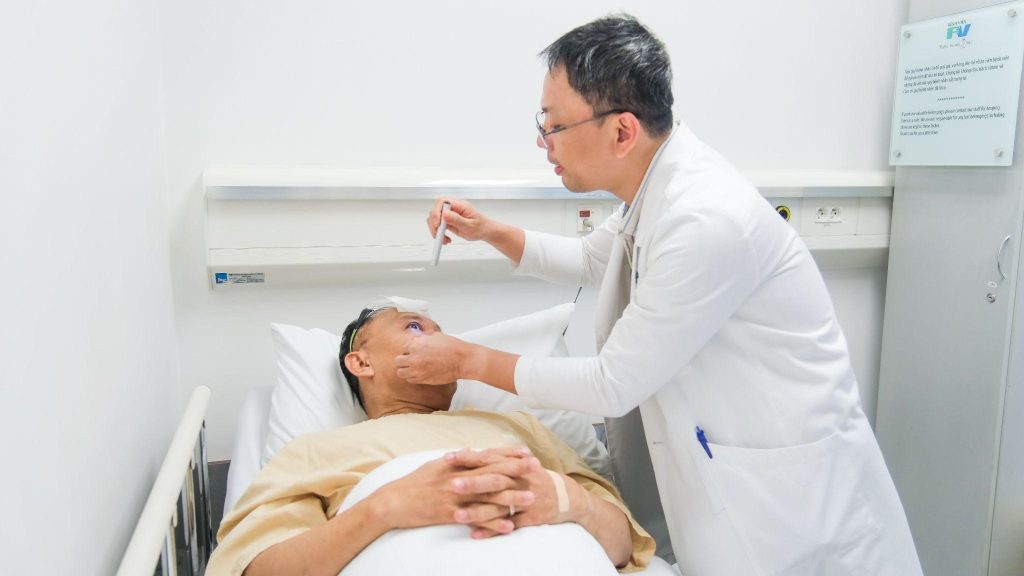
Therefore, patients should undergo fundoscopy to check for vascular disorders, which will allow the doctor to prescribe the appropriate type of artificial lens. The doctor also measures the endothelial cells of the cornea, takes images to assess the power of the lens, and performs OCT scans or colour fundus photography to rule out other vascular issues.
The question arises: why are more and more elderly patients choosing cataract surgery at FV? The reason is that cataract surgeries at FV are performed in operating rooms that adhere to international healthcare standards set by JCI, with strict infection control measures. Patient supplies are single-use devices that minimise the risk of infection. Patients receive detailed guidance on eye care before discharge to avoid potential complications. Thanks to effective management before, during, and after surgery for each case, patients are satisfied and choose FV Hospital for surgery and vision rehabilitation, thereby improving their quality of life.
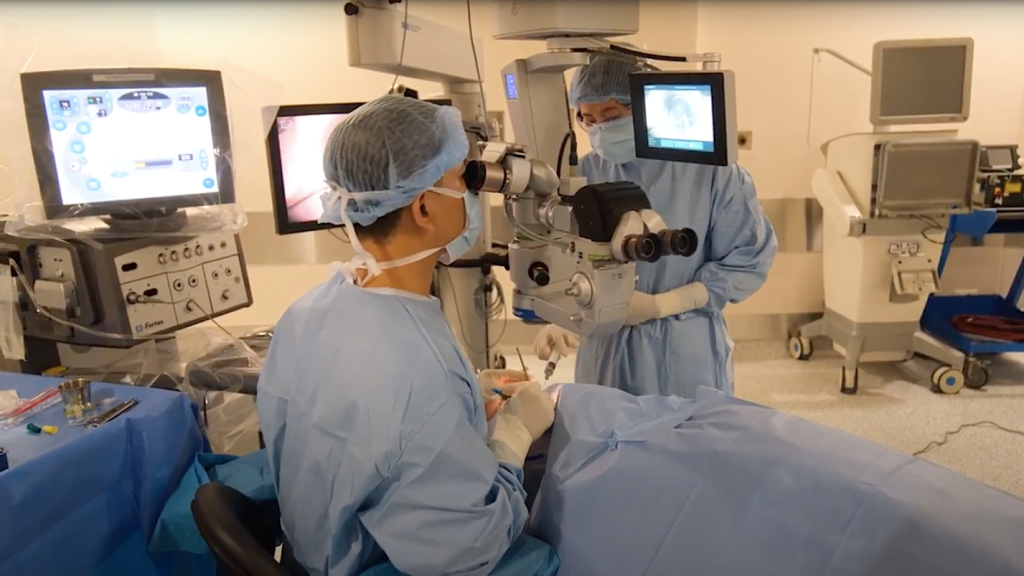
Some people are concerned about potential complications that may occur after cataract surgery, such as infections, posterior capsule opacification, conjunctivitis, bleeding, retinal detachment, and increased intraocular pressure. To prevent these complications, patients must undergo thorough preoperative screening and follow the doctor’s instructions, such as; wearing protective glasses, not driving, limiting reading or using electronic devices, avoiding water contact with the eyes, and refraining from swimming or bathing in the sea during the first few weeks. Additionally, they should adhere to the postoperative care guidelines provided by the doctor.
In cases of pain after surgery, Dr Tam explains that the cause may be due to pressure on the incision or excessive intraocular pressure causing discomfort. However, most patients will be provided pain relief for one night; if pain persists, the patient should seek immediate medical attention.
Some individuals hesitate to undergo cataract surgery because they believe that older age may hinder achieving good results. However, Dr Hoang Chi Tam states that cataract surgery is not age-restrictive. “FV Hospital has successfully operated on a 103-year-old woman with cataracts, helping her recover from a condition where she could hardly see at all to a good level of vision without the need for glasses,” Dr Tam notes.
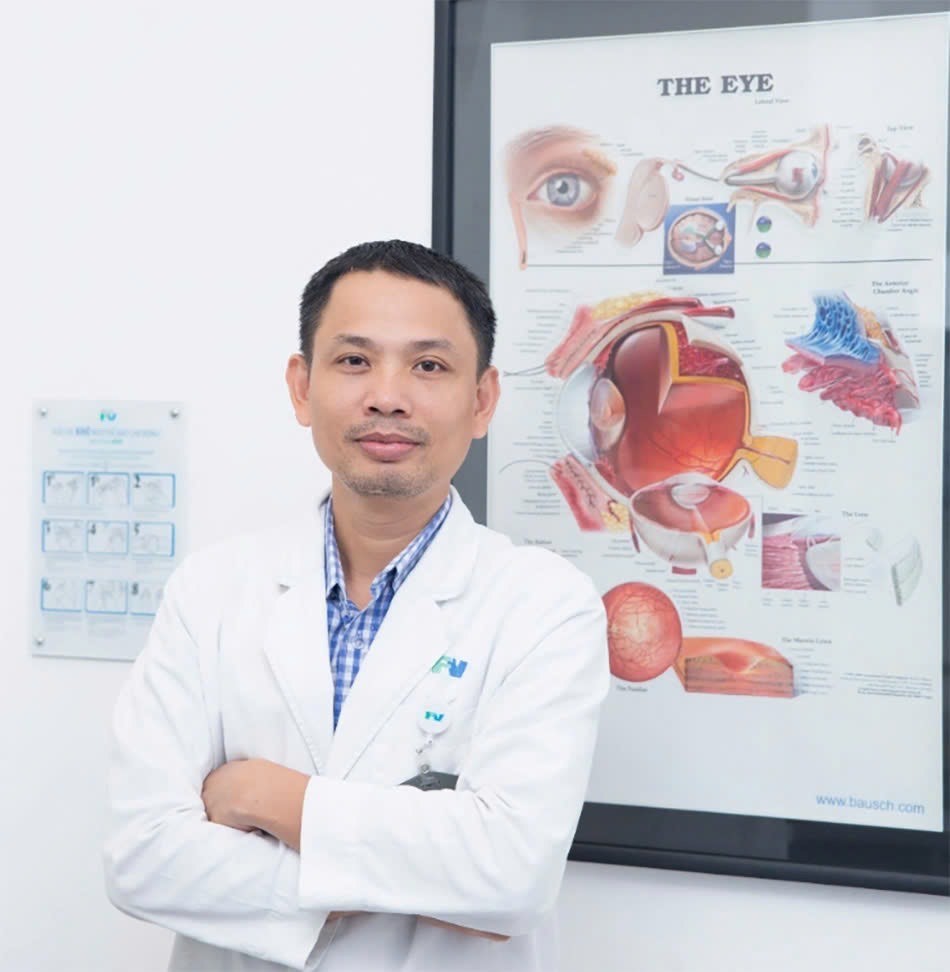
To learn more about cataract surgery, please contact: (028) 54 11 33 33, Ext: 2000, for consultation on cataract surgery at FV Hospital.

 Vi
Vi 
